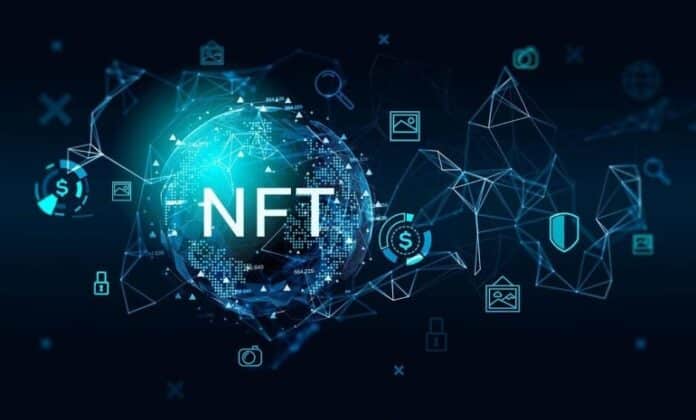
In recent years, NFTs (Non-Fungible Tokens) have emerged as a revolutionary innovation, capturing the attention of industries ranging from art to gaming and beyond. The concept has not only reshaped digital ownership but has also introduced exciting opportunities for various sectors. One of the most dynamic and rapidly growing areas of NFT adoption is the iGaming industry, where these digital tokens integrate with blockchain technology to redefine how players interact with online gambling platforms. This comprehensive guide delves deep into the use of NFTs in iGaming, explaining their technical foundation, their applications, and their future potential.
Understanding the Basics: Blockchain and NFTs
To appreciate the transformative role of NFTs in iGaming, it’s crucial to first understand the technologies that make them possible. Blockchain, the foundation of NFTs, ensures transparency and security through its decentralized and immutable structure. Coupled with cryptocurrencies and smart contracts, it enables the creation of unique digital assets that revolutionize ownership and transactions. These basics set the stage for exploring how NFTs are reshaping the iGaming landscape, much like how platforms offering perks such as Slotozen no deposit bonus codes are transforming the way players engage with online casinos.
Blockchain
To fully appreciate NFTs, one must first understand the blockchain technology upon which they are built. A blockchain is a decentralized digital ledger that records transactions across a network of computers. This system ensures transparency and security through its unique structure. Information is stored in blocks, and each block is linked to the previous one, forming a chain of data that is immutable and chronological.
Key Attributes of Blockchain Technology:
- Immutability: Once a transaction is recorded, it cannot be altered, ensuring data integrity.
- Decentralization: No central authority governs the network, making it resistant to censorship or manipulation.
- Transparency: All participants in the network can view and verify transactions.
While blockchain is commonly associated with cryptocurrencies like Bitcoin and Ethereum, its applications extend far beyond, powering technologies like smart contracts and NFTs.
Cryptocurrencies
Cryptocurrencies are digital currencies designed to function as mediums of exchange. Unlike traditional fiat currencies, cryptocurrencies are decentralized, meaning they are not controlled by governments or central banks. They are divisible, interchangeable, and can be used for transactions across the globe.
NFTs, however, take the concept of digital assets further by introducing uniqueness and individuality. Unlike cryptocurrencies, where one Bitcoin equals another Bitcoin, each NFT is distinct and non-interchangeable. This uniqueness has enabled their adoption in areas such as digital art, gaming, and virtual goods.
Smart Contracts
Smart contracts are self-executing agreements encoded onto a blockchain. They automatically enforce the terms of a contract when predefined conditions are met. For example:
- In a game, a smart contract might release an NFT reward when a player achieves a specific milestone.
- In gambling, smart contracts can ensure fairness by coding and verifying game outcomes transparently.
Smart contracts enhance trust, eliminate intermediaries, and reduce the risk of manipulation, making them a cornerstone of NFT technology.
The Unique Nature of NFTs
NFTs represent digital ownership of assets ranging from artworks and music to in-game items and virtual real estate. They are created through a process called “minting,” where a digital file is converted into a blockchain-based asset.
What Sets NFTs Apart:
- Uniqueness: Each NFT has unique metadata and ownership information.
- Scarcity: The supply of NFTs is limited, and this scarcity often drives value.
- Indivisibility: Unlike cryptocurrencies, NFTs cannot be divided into smaller units.
- Ownership: Blockchain technology ensures secure, verifiable ownership of NFTs.
NFTs have become highly sought after, with collectors spending millions on rare or culturally significant tokens. This trend is now making waves in the iGaming industry, where NFTs offer new ways for players to engage and invest.
NFTs in iGaming: A Paradigm Shift
NFTs as Game Assets
One of the most significant applications of NFTs in iGaming is their use as in-game assets. These can range from character skins and weapons to virtual properties and casino games. Unlike traditional in-game items, which are often tied to a specific platform, NFTs are portable and can be traded or used across different games and platforms.
Examples in Action:
- Players can use NFTs as tokens to place bets.
- Winning an NFT in a game can serve as a valuable prize.
Platforms like BC.Game already accept NFT deposits, allowing players to use their digital assets in gambling activities.
Transparency and Trust Through Blockchain
Trust has always been a critical issue in the iGaming industry. Players often question whether games are fair or if outcomes are manipulated. Blockchain and NFTs address these concerns by introducing provably fair gaming systems. Every transaction and outcome is recorded on the blockchain, ensuring transparency and preventing tampering.
For example:
- Provably Fair Games: These games use blockchain to verify that results are determined by pre-written smart contracts rather than human interference.
- Secure Ownership: Players can own in-game assets with proof of authenticity stored on the blockchain.
Exclusive Memberships and VIP Rewards
NFTs also serve as digital keys to exclusive experiences. Online casinos and gaming platforms can offer NFT-based memberships, granting holders access to VIP tournaments, special bonuses, or unique game features. These memberships are secure and verifiable through blockchain technology.
This approach not only enhances the user experience but also encourages loyalty and engagement among players.
Gamification of Ownership
Another groundbreaking concept is allowing players to own gaming infrastructure within virtual worlds. In the metaverse, for instance, players can purchase NFTs representing virtual slot machines, poker tables, or even entire casinos. As owners, they can earn a share of the revenue generated by these assets.
This gamification of ownership blurs the line between players and operators, creating new opportunities for earning and investment.
Prominent NFT Gaming Platforms
The rise of NFTs has paved the way for innovative gaming platforms that blend digital ownership with engaging gameplay. These platforms are redefining how players interact with games, introducing elements of investment, customization, and unique ownership. By leveraging blockchain technology, these platforms ensure transparency, security, and verifiable ownership, creating a dynamic environment for gamers and collectors alike. Below, we explore some of the standout examples of NFT-powered gaming platforms that are shaping the future of digital entertainment.
NBA Top Shot
NBA Top Shot has gained immense popularity by offering digital collectibles of iconic basketball moments, tokenized as NFTs. Each collectible, known as a “moment,” represents a video clip of a specific play, such as a slam dunk or game-winning shot. These moments are available in limited editions, making them highly valuable.
Notable Sale: In April 2021, a LeBron James NFT sold for $390,000.
NBA Top Shot combines the excitement of collecting with elements of sports betting, attracting fans and collectors alike.
Sorare
Sorare is a fantasy football platform where players can buy, sell, and trade NFT-based player cards. These cards can be used to assemble fantasy teams and compete in tournaments for rewards.
Unlike NBA Top Shot, Sorare focuses on individual cards and curated sets rather than randomized packs. This approach appeals to football enthusiasts and collectors who value strategy and customization.
The Metaverse and NFT Gaming
The metaverse is a virtual universe where users interact in real-time, engaging in activities such as gaming, shopping, and socializing. Within this immersive environment, NFTs play a crucial role as:
- Digital Assets: Representing items, properties, or characters.
- Currencies: Facilitating transactions and trades.
- Memberships: Granting access to exclusive areas or events.
In the iGaming sector, the metaverse offers endless possibilities. Players can participate in virtual casino games, own digital properties, and even host gambling events.
Regulatory Landscape for NFTs in iGaming
As a relatively new technology, NFTs operate in a legal gray area in many jurisdictions. Governments and regulatory bodies are gradually working to define and regulate this space.
Key Challenges:
- Taxation: While profits from cryptocurrencies are taxed in many countries, clear guidelines for NFTs are still lacking.
- Fraud Prevention: The anonymity of blockchain transactions raises concerns about money laundering and fraud.
- Consumer Protection: The volatile nature of NFT markets can lead to significant financial risks for uninformed participants.
The European Union, for example, is exploring regulations for NFTs similar to those for cryptocurrencies, focusing on transparency and anti-fraud measures.
The Future of NFTs in iGaming
The NFT market is poised for explosive growth, with MarketsandMarkets predicting a valuation of over $13 billion by 2027. As technology evolves, NFTs are expected to become integral to the iGaming experience.
Emerging Trends:
- Customizable Gaming Experiences: Players will design and own unique in-game assets.
- Decentralized Gaming Platforms: Games will operate without centralized authorities, offering more freedom and fairness.
- Broader Adoption: As blockchain becomes more accessible, a wider audience will embrace NFT gaming.
Conclusion
NFTs are transforming the iGaming industry by introducing innovative ways to play, own, and earn. From transparent gaming experiences to digital asset ownership, the integration of NFTs and blockchain technology is revolutionizing online gambling. While challenges like regulation and market volatility remain, the potential of NFTs to enhance player engagement and trust is undeniable.
As the technology matures, NFTs are likely to become a cornerstone of the iGaming ecosystem, offering players an unprecedented level of immersion, security, and opportunity. Whether you’re a casual gamer, a dedicated collector, or an investor, the future of NFTs in iGaming holds exciting possibilities.







